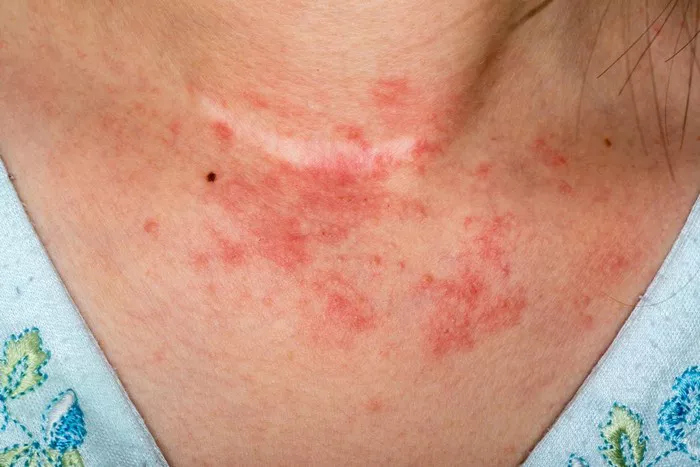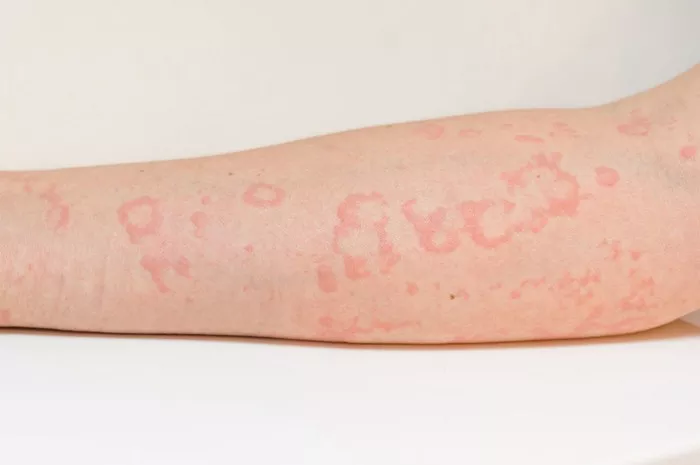Eczema, also known as atopic dermatitis, is a chronic skin condition characterized by red, itchy, and inflamed patches of skin. It affects millions of people worldwide, often causing discomfort and distress. While there is no cure for eczema, there are various strategies and treatments available to manage symptoms and promote healing. In this comprehensive guide, we will explore effective ways to heal eczema patches and improve skin health.
Understanding Eczema: Causes and Triggers
Before delving into treatment options, it’s essential to understand the underlying causes and triggers of eczema. While the exact cause of eczema remains unknown, it is believed to result from a combination of genetic, environmental, and immune system factors. Common triggers include:
- Allergens: Substances such as pollen, pet dander, and certain foods can trigger eczema flare-ups in susceptible individuals.
- Irritants: Harsh soaps, detergents, and chemicals found in skincare products can irritate the skin and exacerbate eczema symptoms.
- Dry Skin: A compromised skin barrier, often associated with dry skin, makes individuals more susceptible to eczema.
- Stress: Emotional stress or anxiety can trigger or worsen eczema symptoms in some people.
Identifying and avoiding these triggers is the first step in managing eczema and promoting healing.
Hydration and Moisturization: Key to Healing
One of the fundamental principles in eczema management is keeping the skin well-hydrated and moisturized. Moisturizers help restore the skin’s natural barrier function, preventing moisture loss and protecting against external irritants. When selecting a moisturizer for eczema-prone skin, opt for products that are fragrance-free, hypoallergenic, and gentle on sensitive skin. Apply moisturizer generously and frequently, especially after bathing or showering, to lock in moisture and soothe dry, itchy skin.
Topical Treatments for Eczema Relief
In addition to moisturizers, topical treatments play a crucial role in managing eczema symptoms and promoting healing. Topical corticosteroids are commonly prescribed to reduce inflammation and relieve itching associated with eczema flare-ups. These medications come in varying strengths and formulations, and it’s essential to use them as directed by your healthcare provider to minimize side effects and maximize effectiveness.
For individuals with more severe or persistent eczema, non-steroidal topical medications such as calcineurin inhibitors may be recommended. These medications work by modulating the immune response in the skin, helping to reduce inflammation and improve symptoms. However, long-term use of these medications should be monitored closely due to potential side effects.
Antihistamines and Anti-itch Remedies
Itchiness is a common and distressing symptom of eczema, often leading to scratching and further skin damage. Antihistamines can help alleviate itching by blocking the effects of histamine, a chemical released during allergic reactions. Over-the-counter antihistamines such as diphenhydramine (Benadryl) or cetirizine (Zyrtec) may provide temporary relief from itching, especially at night when symptoms tend to worsen.
In addition to oral antihistamines, topical anti-itch remedies such as calamine lotion or colloidal oatmeal baths can provide soothing relief for irritated skin. These remedies help calm inflammation and reduce itchiness, promoting healing and comfort.
Avoiding Triggers: Environmental and Lifestyle Modifications
Identifying and avoiding triggers is essential in managing eczema and preventing flare-ups. Make simple changes to your environment and lifestyle to minimize exposure to known triggers:
- Avoid Harsh Chemicals: Use mild, fragrance-free skincare products and laundry detergents to reduce skin irritation.
- Maintain Optimal Humidity: Use a humidifier to keep indoor air moist, especially during the dry winter months.
- Manage Stress: Practice stress-reducing techniques such as meditation, yoga, or deep breathing exercises to help prevent stress-induced flare-ups.
- Dietary Modifications: Identify and eliminate potential food triggers from your diet, such as dairy, gluten, or processed foods, to see if they impact your eczema symptoms.
By making these simple lifestyle modifications, you can minimize eczema flare-ups and promote healing of affected skin.
Seeking Professional Guidance
While self-care measures and over-the-counter remedies can provide relief for mild to moderate eczema, it’s essential to seek professional medical advice for persistent or severe symptoms. A dermatologist or allergist can help diagnose eczema accurately and develop a personalized treatment plan tailored to your specific needs.
In some cases, prescription medications such as oral corticosteroids, immunosuppressants, or biologic therapies may be necessary to manage severe eczema symptoms effectively. Your healthcare provider can help determine the most appropriate treatment options based on the severity of your condition and your individual health profile.
Conclusion
Healing eczema patches requires a comprehensive approach that addresses underlying triggers, promotes skin hydration, and utilizes effective topical treatments. By understanding the causes of eczema and implementing targeted strategies for management and prevention, individuals can experience relief from symptoms and enjoy improved skin health. Remember to consult with a healthcare professional for personalized guidance and treatment recommendations tailored to your needs. With proper care and attention, managing eczema is achievable, allowing individuals to live comfortably and confidently with their skin condition.
Related Topics:

























